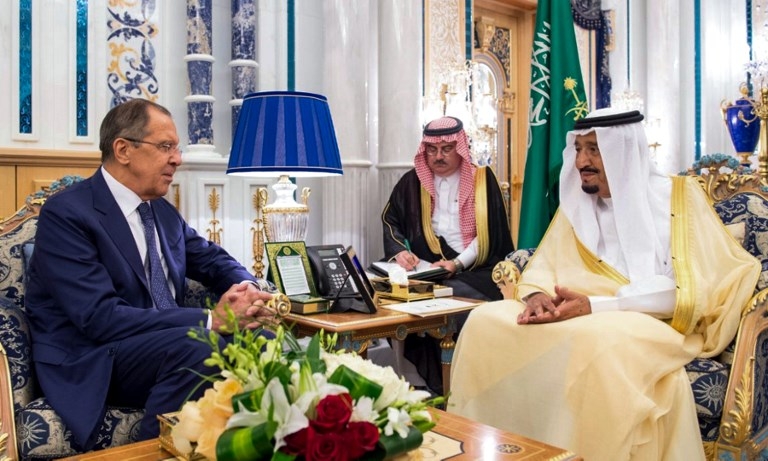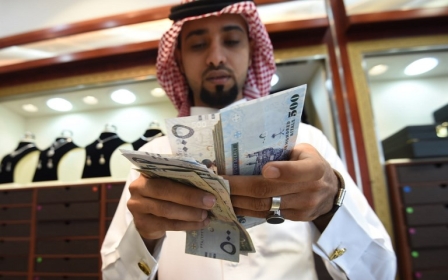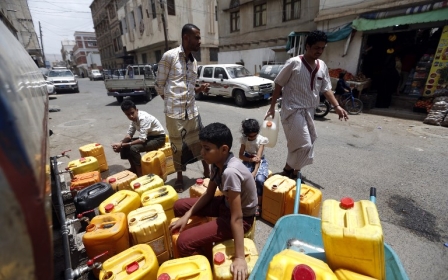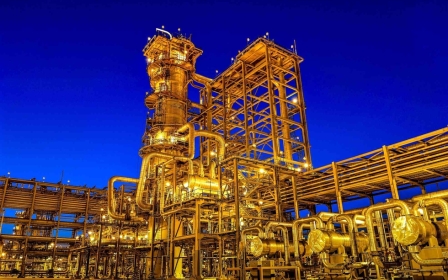Saudi Arabia, Russia to set up $1bn energy fund

Saudi Arabia and Russia plan to set up a $1bn fund to invest in energy projects, Russian Energy Minister Alexander Novak said in an interview broadcast by Al Arabiya TV on Monday.
The fund, to be finalised during this week’s visit by Saudi King Salman to Moscow, was part of efforts by two of the world’s biggest oil producers to expand cooperation, he said.
“Our focus is not just on strengthening our cooperation within the framework of the OPEC and non-OPEC (agreement) but also the strengthening of cooperation in oil, gas, electricity, renewable energy and other projects for oil and gas equipment,” he told the television channel regarding the fund’s activities.
Saudi Arabia, the biggest oil producer in the Organisation of the Petroleum Exporting Countries (OPEC), and Russia helped forge a deal between OPEC and other producers to cut output by 1.8 million barrels per day from January to lift crude prices.
Oil prices, which slumped in the past three years, have climbed to about $56 a barrel but are still around half the level they were in mid-2014.
“We are working on a number of agreements and we will announce them during the visit,” Novak said of the Saudi-Russian efforts to expand their cooperation in the energy industry.
Novak said Russian firms were discussing deals with energy giant Saudi Aramco, such as providing drilling services in Saudi Arabia and Rosneft’s interest in crude trading.
Saudi partners were considering joining Russia’s Novatek in producing gas in Russia, he added.
A Russian energy source told Reuters that a memorandum of understanding (MoU) was expected to be signed between Novatek and Saudi Arabia on a liquefied natural gas (LNG) project, known as Arctic LNG-2, that aims to start up in the 2020s. It is Novatek’s second LNG project.
He said details were still being discussed. Russia would like Saudi Arabia to become a shareholder in the project but the source said there were also other roles the kingdom could take.
Saudi Aramco and Saudi Basic Industries Corp (SABIC) is expected to sign an MoU with Russia’s biggest petrochemical firm Sibur to examine opportunities for building petrochemical plants in the two countries.
On Russian-Saudi cooperation in the oil market, Novak said: “I would like to reaffirm that we are satisfied with our cooperation with Saudi Arabia.”
Novak said he saw oil prices stabilising around $50 to $60 a barrel, a level he described as “suitable”.
Investment firms for holy cities
Meanwhile, Saudi Arabia's Public Investment Fund on Monday announced plans to set up two investment companies to develop infrastructure in Mecca and Medina, Islam's two holiest cities.
The state-run PIF announced the creation of Rou'a Al-Haram and Rou'a Al-Madinah for Mecca and Medina respectively, where the annual number of visitors is expected to triple by 2030.
The two firms will together build 150,000 hotel rooms to accommodate the increase in Muslim pilgrims who visit the sites annually.
PIF said the number of visitors is expected to reach 30 million in Mecca and 23 million in Medina by 2030, up from a total of eight million to both sites this year.
The two firms are part of a venture included in Saudi Arabia's Vision 2030, a development plan aimed at diversifying the country's economic revenue model and decreasing its reliance on oil.
The first phase of the project will be completed within five years, according to the PIF.
Saudi Arabia has said the two projects are expected to create more than 200,000 jobs.
The Public Investment Fund did not disclose the cost of the project.
New MEE newsletter: Jerusalem Dispatch
Sign up to get the latest insights and analysis on Israel-Palestine, alongside Turkey Unpacked and other MEE newsletters
Middle East Eye delivers independent and unrivalled coverage and analysis of the Middle East, North Africa and beyond. To learn more about republishing this content and the associated fees, please fill out this form. More about MEE can be found here.




